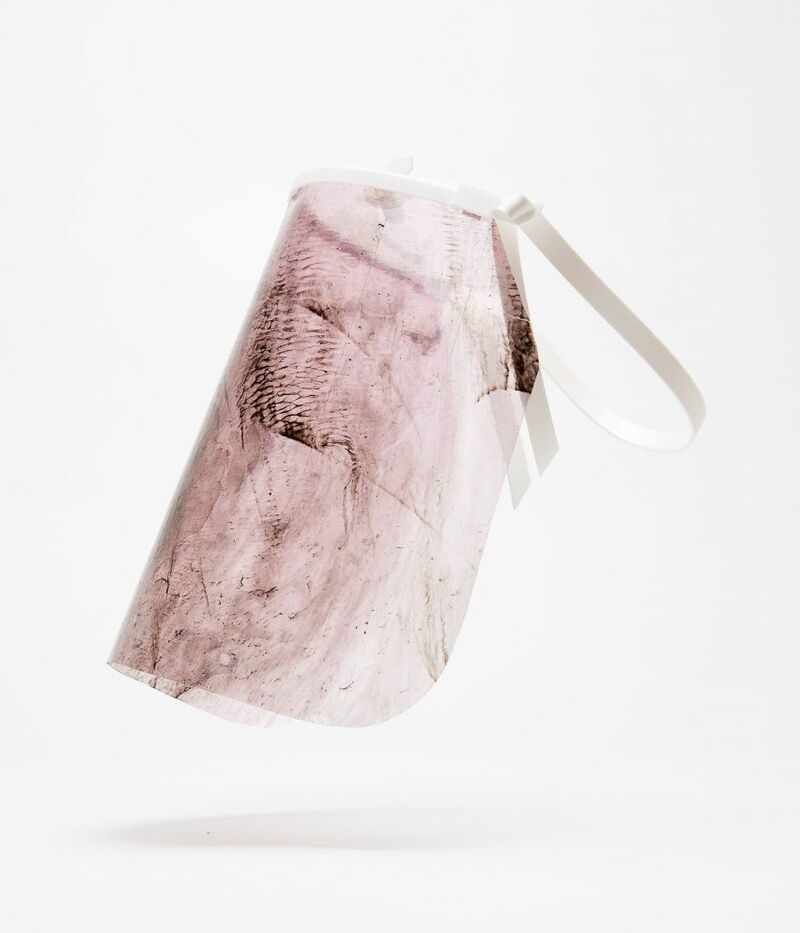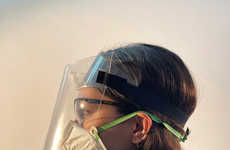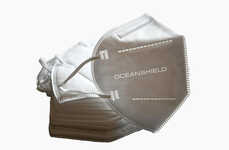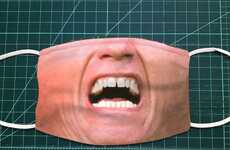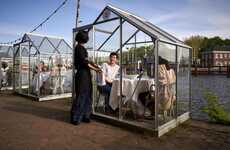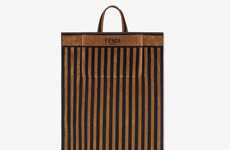
Alice Potts' Bioplastic Face Shields Combine Food Waste & Flowers
Laura McQuarrie — October 27, 2020 — Eco
References: dezeen
Alice Potts created bioplastic face shields for the NGV Triennial that are made from food waste collected in London. Unlike many PPE designs that are made from single-use plastic, these face shields unite unconventional materials like food waste and flowers, which create a subtle tint.
Dubbed Dance Biodegradable Personal Protective Equipment (DBPPE) Post Covid Facemasks, the face shields have 3D-printed components that hold bioplastic shields, which are colored by different materials. As Potts described to Dezeen, "The food waste is the base, and type of color depends on the type of waste thrown out. This is normally collected by me from local food markets, butchers and households."
After the face shields go on display at the NGV Triennial at the National Gallery of Victoria, Potts plans to make the designs open-source and available to all.
Image Credit: Alice Potts
Dubbed Dance Biodegradable Personal Protective Equipment (DBPPE) Post Covid Facemasks, the face shields have 3D-printed components that hold bioplastic shields, which are colored by different materials. As Potts described to Dezeen, "The food waste is the base, and type of color depends on the type of waste thrown out. This is normally collected by me from local food markets, butchers and households."
After the face shields go on display at the NGV Triennial at the National Gallery of Victoria, Potts plans to make the designs open-source and available to all.
Image Credit: Alice Potts
Trend Themes
1. Bioplastics - Opportunity for the bioplastics industry to create more sustainable personal protective equipment designs that incorporate unconventional materials such as food waste.
2. Sustainable PPE - Opportunity for the PPE industry to shift towards more sustainable materials and designs, such as bioplastics made from food waste, to reduce environmental impact.
3. Open-source Design - Opportunity for open-source innovation and collaboration within the PPE and sustainability industries to improve design and reduce waste.
Industry Implications
1. Bioplastics Industry - The bioplastics industry can take advantage of incorporating unconventional materials like food waste in PPE design for added sustainability.
2. PPE Industry - The PPE industry can benefit from creating more sustainable options with less environmental impact and potentially reduce single-use plastics.
3. Sustainability Industry - The sustainability industry can innovate and collaborate on open-source designs for more eco-friendly and sustainable PPE options.
6.6
Score
Popularity
Activity
Freshness






